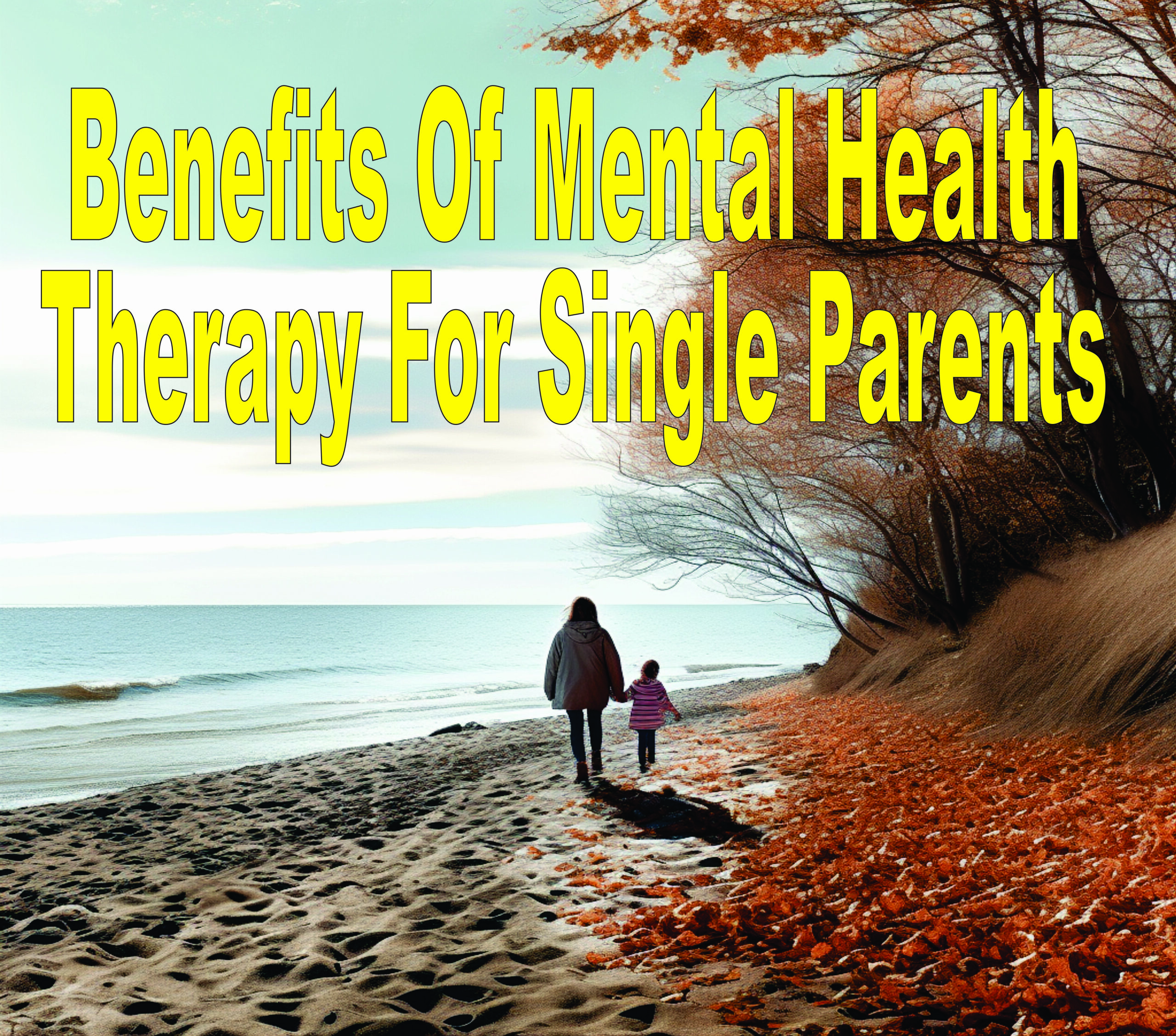Benefits Of Mental Health Therapy For Single Parents

Last Updated on February 29, 2024 by Lori Pace
Becoming a parent is a demanding and challenging role that requires a great deal of resilience, patience, and strength. For single parents, the difficulty of this role is raised to a whole new level. Single parents must manage to raise their children alone, provide for them, and fulfilling their needs. These tasks already sound overwhelming, not to mention doing it for more than 16 years. Unfortunately, this often leads to mental health challenges such as anxiety, depression, and burnout. In such cases, seeking professional help or mental health therapy is the best option.
While it can be challenging to take the first step and seek help, it is crucial to keep your well-being in mind. By doing so, you can ensure that you provide the best possible care for your children. In this article, we will explore the benefits of mental health therapy for single parents to help them reach out and seek the help they need.
On a side note, if you are looking for Government programs that support mental health, we also have you covered.
Understanding Common Challenges Single Parents Face
While every parent faces their own struggles and challenges, we’ll have to agree that single parents have a set of obstacles unique to their situation. Single parenting can be a challenging experience with several common stressors impacting one’s mental and physical well-being.

To help you better understand the single-parent lifestyle, here are some of the most common stressors single parents face. If you are a single parent yourself, they’ll help you see that you’re all but alone in how you feel:
- One of the most common stressors is feeling stretched too thin. Single parents have to juggle daily demands like running errands, cooking, and school pick-up and drop-off on their own.
- Financially supporting the family can also be a severe mental burden, as single parents are responsible for all financial decisions. Plus, if a single parent is limited to a single income and has no support, it can be increasingly difficult for them.
- Custody disputes and disagreements with co-parents can be difficult to navigate and be the cause of major stress. That’s why it’s crucial to focus on the children’s well-being and maintain a civil working relationship.
- Little to no personal time and feelings of loneliness and isolation can also add to the stress of single parenting. It can be really difficult to make time for yourself in a hectic schedule. Still, it’s important to prioritize self-care, seek community support, delegate age-appropriate tasks to kids, and set boundaries when you are off-limits.
Benefits Of Mental Health Therapy For Single Parents
Ultimately, taking steps to manage these stressors can improve the quality of life for both single parent and their children. However, sometimes things can get too overwhelming and challenging for a single parent. Unfortunately, many who don’t seek professional help end up with severe mental health issues or turn to substance abuse. This has negative effects on the parent as it has on the children involved.
That’s why addiction recovery experts from Little Creek Recovery emphasize the importance of seeking help and raising awareness of these issues. Even though it’s not always the case, plenty of single parents struggling with addiction could have prevented it from happening if they only had the support and knowledge to turn to professionals in the first place. To encourage and inspire you to reach out to mental health professionals for guidance, here are six benefits of mental health therapy for single parents.
#1 Provides A Safe Space For Self-Expression
Being a single parent can be an isolating experience, with few people who can truly understand the struggles and challenges of the role. Mental health therapy provides a safe space for single parents to express themselves without fear of judgment. Trained therapists are adept at listening and understanding their clients’ experiences, which can help single parents feel heard and validated. This, in turn, can be a powerful tool for improving mental health and well-being.

#2 Mental Health Therapy Offers Support And Guidance
Single parents may feel they have to do everything on their own, but that is not always the case. Mental health therapists can provide support and guidance, helping single parents navigate the challenges of parenthood. They can offer coping strategies for stress, give you stress management tips, provide guidance on setting boundaries and teach communication skills that can improve relationships with children, family members, and others.
For example, effective therapy strategies by Rula therapists could help to provide you with support and guidance. Path utilizes a streamlined matching process to help connect you with the right therapist for your individual needs.
#3 Promotes Self-Care
Single parents often put their children’s needs before their own, leaving little time for self-care. Mental health therapy can help single parents prioritize their own well-being, teaching them techniques for relaxation and self-care. Therapists can suggest activities such as meditation, exercise, and hobbies that can improve mental health and reduce stress. So, find a reliable babysitter and give yourself some quality self-care hours.
#4 Mental Health Therapy Builds Resilience
Being a single parent can be emotionally and mentally draining. Mental health therapy can help single parents build resilience, allowing them to bounce back from challenges and setbacks. Therapists can provide tools for managing stress, building coping skills, and developing a positive mindset. These skills can be applied in various areas of life, helping single parents feel more confident and empowered.
#5 Reduces Symptoms of Anxiety and Depression
Single parents are at a higher risk of developing anxiety and depression due to the demands of their role. Mental health therapy can help alleviate symptoms of these conditions, providing tools for managing negative thoughts, improving sleep patterns, and reducing stress. Therapists can also help single parents identify the root causes of their anxiety or depression, helping them work towards long-term solutions. On top of that, you can always consider alternative remedies, too, that can help you on top of therapy. For instance, using essential oils is a great way to relieve stress and help manage symptoms of anxiety and depression.
#6 Improves Communication
Effective communication is essential in any relationship, but it’s particularly crucial in the parent-child relationship. Mental health therapy can help single parents improve their communication skills, teaching them how to listen actively, express themselves clearly, and set boundaries. Better communication can improve the relationship between single parents and their children, leading to a more positive and harmonious home environment.
The Bottom Line Of Mental Health Therapy
On top of what we’ve listed, there are plenty more benefits of mental health therapy for single parents. By providing a safe space for expression, offering support and guidance, promoting self-care, building resilience, improving communication, and reducing symptoms of anxiety and depression, mental health therapy can help single parents manage stress, build resilience, and improve their overall well-being. Being a single parent is not easy, but investing in mental health can make a significant difference in the quality of life for you and your children. And make sure to join the single moms’ community, where you’ll find additional support and advice that will help you go through single parenthood more easily.






